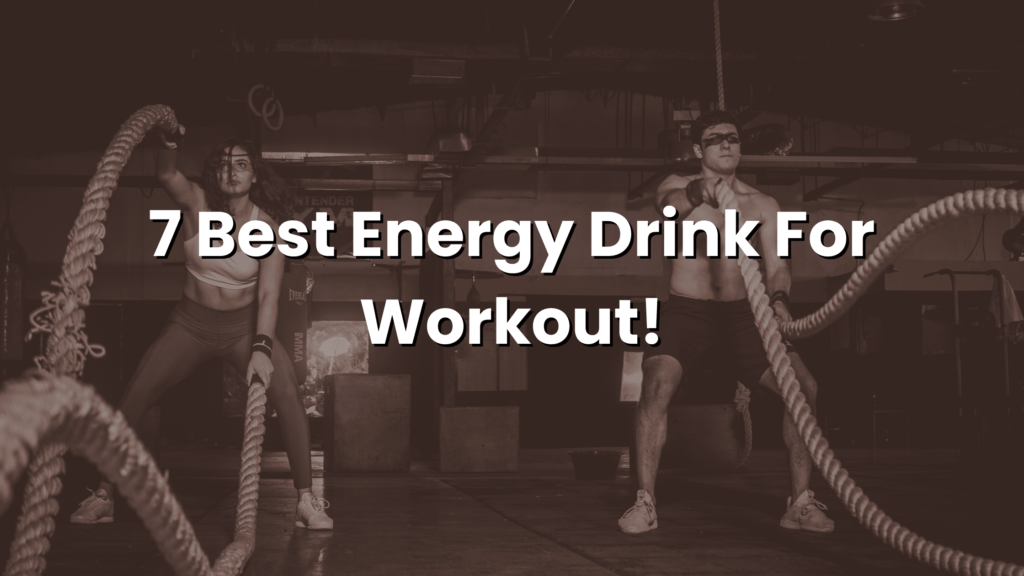In this blog we will discover the 7 best energy drink for workouts in our comprehensive guide. Learn about key ingredients, pros and cons, user experiences, and pricing to find the perfect boost for your fitness routine.
Table of Contents
Importance of Energy Drink in Enhancing Workout Performance
Energy drinks have become a staple for many fitness enthusiasts, athletes, and casual gym-goers. Their popularity isn’t just due to clever marketing, there are concrete reasons why these beverages can significantly enhance workout performance. Here’s why energy drinks are essential for anyone looking to maximize their fitness routine:
- Boosting Energy Levels:
- Quick Energy Boost: The primary benefit of energy drinks is their ability to provide a quick surge of energy. This is particularly helpful before a workout when you need that extra push to get started or during a session when you start to feel fatigued.
- Sustained Energy Release: Many energy drinks are formulated to provide not just a quick burst but also a sustained release of energy, ensuring that you can power through longer workouts without experiencing a mid-session crash.
- Enhancing Focus and Concentration:
- Improved Mental Clarity: The caffeine and other stimulants in energy drinks help improve mental alertness and concentration. This can be crucial during workouts that require precision and attention to form, such as weightlifting or high-intensity interval training (HIIT).
- Increased Motivation: With enhanced focus, users often find themselves more motivated and driven to complete their workout routines effectively.
- Aiding in Recovery:
- Electrolyte Replacement: Many energy drinks contain electrolytes that help replace those lost through sweat during intense workouts. This aids in quicker recovery and reduces the risk of cramps and dehydration.
- Nutrient Delivery: Some energy drinks are fortified with vitamins and minerals that support muscle recovery and overall health, making them a valuable addition to post-workout nutrition.
- Optimizing Workout Efficiency:
- Enhanced Endurance: The combined effects of increased energy, improved focus, and better hydration help enhance overall endurance. This means you can work out longer and more effectively, reaching your fitness goals faster.
- Better Performance: By mitigating fatigue and supporting recovery, energy drinks enable you to perform at your peak, whether it’s lifting heavier weights, running longer distances, or pushing through challenging training sessions.
Suggested: 5 Best Gym Workout App For 2024!
7 Best Energy Drink For Workout
1. Red Bull
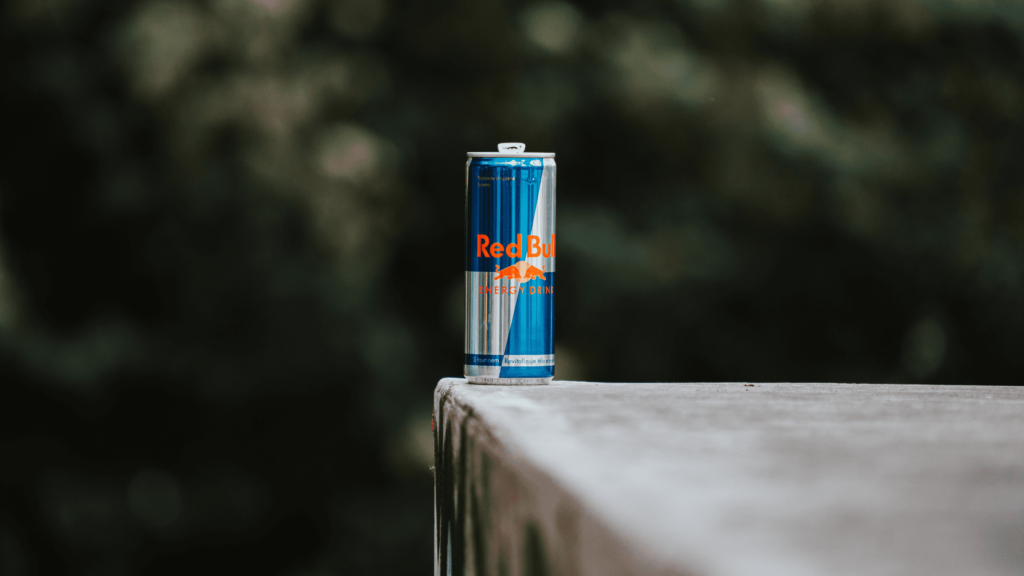
Overview: Red Bull is one of the most popular energy drinks worldwide, known for its ability to boost energy and improve focus.
Key Ingredients: Caffeine, taurine, B vitamins, sugar
Pros:
- Quick energy boost
- Widely available
- Trusted brand
Cons:
- High sugar content
- Possible jitters for caffeine-sensitive individuals
User Experience: Users report an immediate surge in energy and improved alertness, making it ideal for pre-workout consumption.
Pricing: Approximately $2 per 8.4 oz can
2. Monster Energy
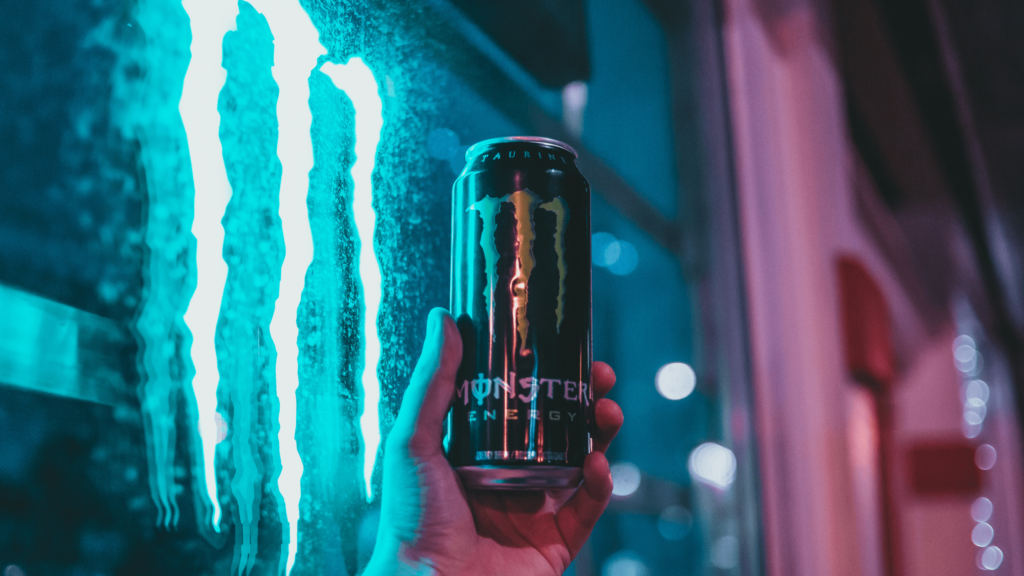
Overview: Monster Energy is favored for its larger serving size and blend of ingredients aimed at providing sustained energy.
Key Ingredients: Caffeine, taurine, B vitamins, ginseng, sugar
Pros:
- Long-lasting energy
- Variety of flavors
- Contains additional ingredients for endurance
Cons:
- High sugar and calorie content
- Large can size may be too much for some
User Experience: Users appreciate the prolonged energy boost and variety of flavors, but some find the large size overwhelming.
Pricing: Approximately $3 per 16 oz can
3. Bang Energy
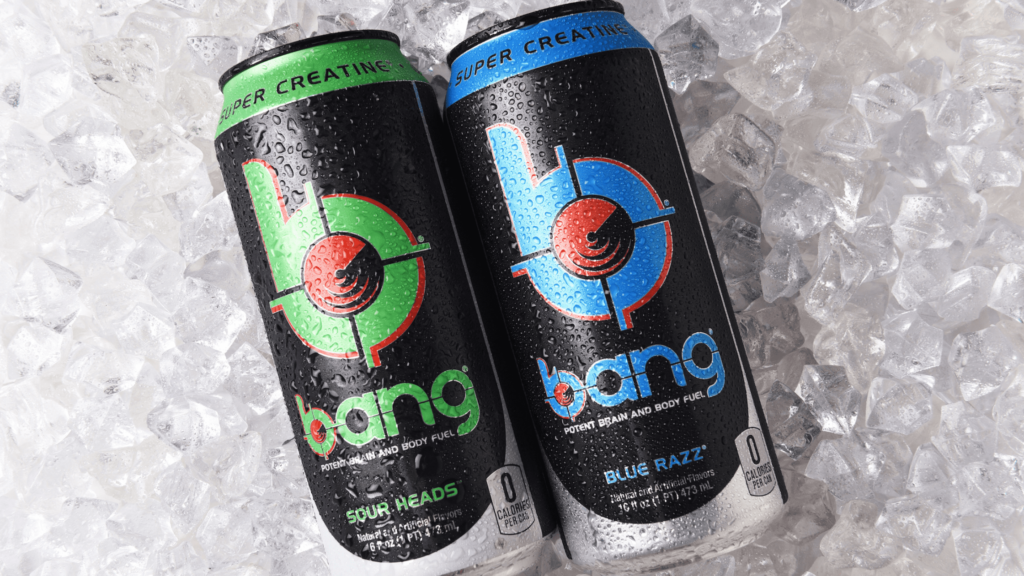
Overview: Bang Energy is known for its potent formula and zero sugar content, making it a popular choice for fitness enthusiasts.
Key Ingredients: Caffeine, BCAAs, CoQ10, electrolytes, zero sugar
Pros:
- Zero sugar and calories
- Contains BCAAs and CoQ10 for muscle recovery
- High caffeine content
Cons:
- High caffeine may not be suitable for everyone
- Expensive
User Experience: Users rave about the energy boost without the sugar crash, but some find the caffeine content too high.
Pricing: Approximately $2.50 per 16 oz can
Similar: EAA vs BCAA: Which Supplement is Right for You?
4. Celsius
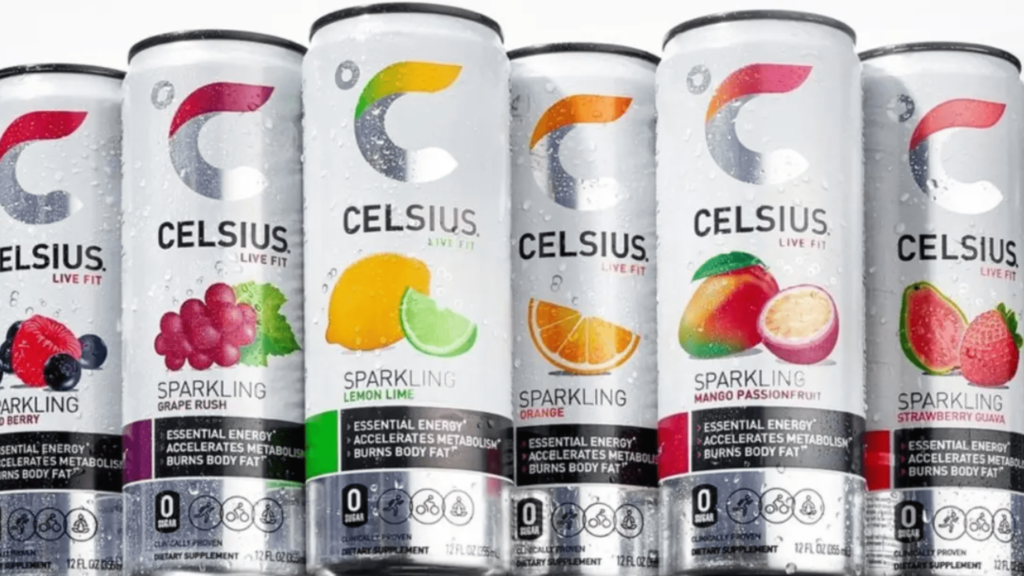
Overview: Celsius is marketed as a fitness drink, focusing on boosting metabolism and providing clean energy.
Key Ingredients: Caffeine, green tea extract, guarana, ginger, B vitamins
Pros:
- Boosts metabolism
- No artificial preservatives
- Moderate caffeine content
Cons:
- Taste may not be appealing to everyone
- Pricey
User Experience: Users enjoy the steady energy and metabolic boost, though some are divided on the flavor.
Pricing: Approximately $2 per 12 oz can
5. Gatorade Energy Drink
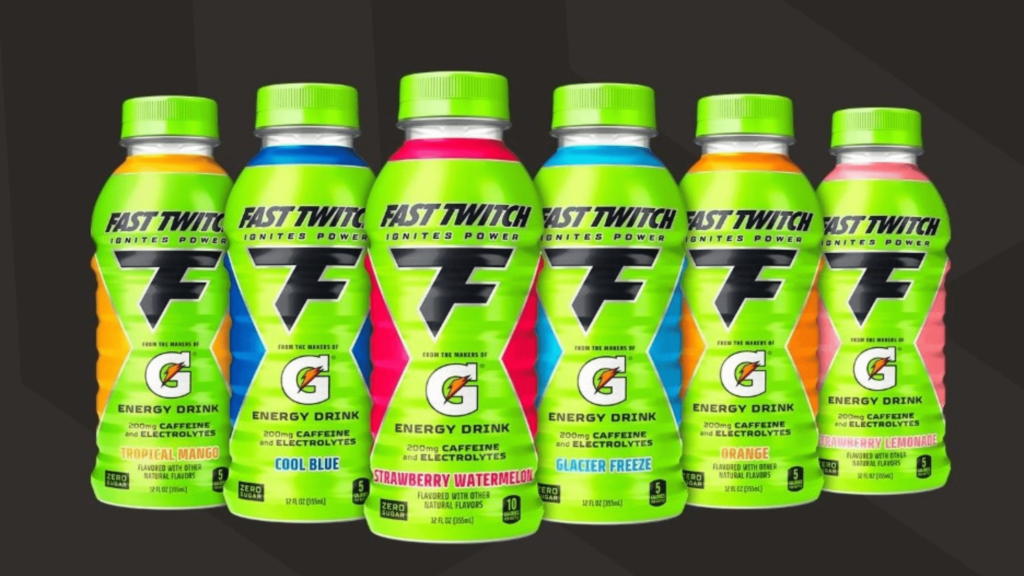
Overview: Gatorade Energy Drink combines the hydration benefits of traditional Gatorade with added caffeine for energy.
Key Ingredients: Caffeine, electrolytes, B vitamins, sugar
Pros:
- Hydration and energy boost in one
- Trusted brand for sports drinks
- Contains electrolytes
Cons:
- High sugar content
- Not as strong as other energy drinks
User Experience: Users find it effective for hydration and a mild energy boost, but it’s not as potent as other energy drinks.
Pricing: Approximately $2.50 per 12 oz bottle
6. Zipfizz
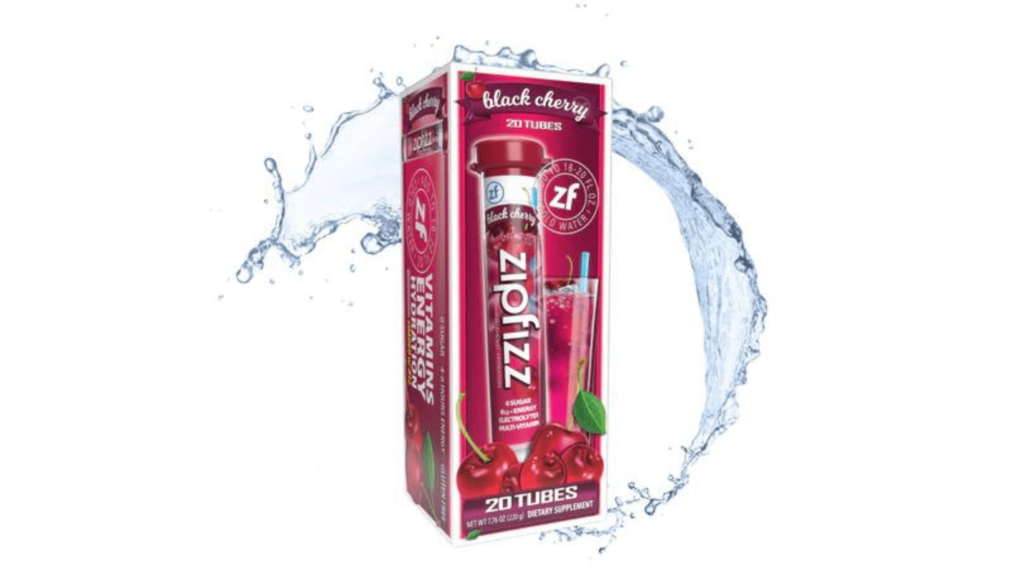
Overview: Zipfizz is a powdered energy drink mix known for its low calorie and high nutrient content.
Key Ingredients: Caffeine, B vitamins, electrolytes, antioxidants, zero sugar
Pros:
- Low calorie and sugar-free
- Packed with vitamins and antioxidants
- Convenient powder form
Cons:
- Requires mixing with water
- May not be as immediate as liquid drinks
User Experience: Users appreciate the convenience and nutrient boost, though some prefer the immediate effect of ready-to-drink options.
Pricing: Approximately $1.50 per serving
7. REIZE
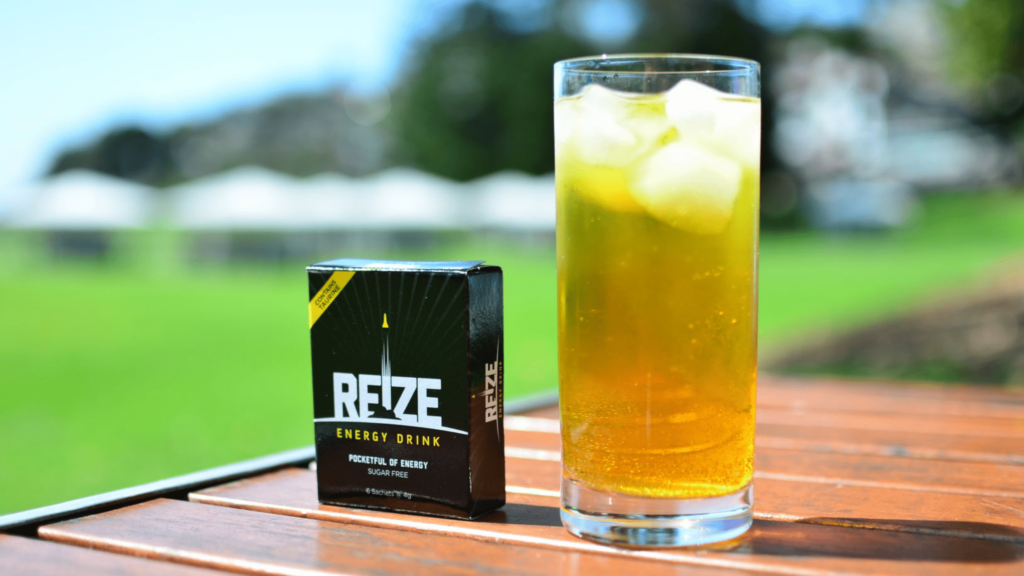
Overview: REIZE is a powdered energy drink designed for a balanced energy boost with a blend of vitamins and minerals.
Key Ingredients: Caffeine, taurine, ginseng, B vitamins, zero sugar
Pros:
- Low calorie and sugar-free
- Convenient and portable
- Contains a balanced blend of ingredients
Cons:
- Requires mixing with water
- Mild compared to other energy drinks
User Experience: Users enjoy the balanced energy boost and convenience of the powder format, but those seeking a strong kick might find it mild.
Pricing: Approximately $1 per serving
Tips for Using Energy Drinks Effectively
Timing: Best Times to Consume Energy Drinks for Maximum Benefit
- Pre-Workout:
- When: 30-45 minutes before your workout.
- Why: Consuming an energy drink before your workout helps you to experience the full benefits of increased energy, focus, and endurance during your exercise session.
- Mid-Workout:
- When: During longer workouts lasting more than an hour.
- Why: For extended workouts, consuming an energy drink midway can help maintain energy levels and prevent fatigue, ensuring you sustain high performance throughout the session.
- Post-Workout:
- When: Immediately after your workout.
- Why: Some energy drinks contain ingredients that aid in muscle recovery and replenish lost nutrients. Consuming them post-workout can support faster recovery and reduce muscle soreness.
Download Your Weekly Meal Plan Template: Your Go To Meal Prep
Dosage: Recommended Amounts to Avoid Overconsumption
- Caffeine Content:
- Limit: 400 mg of caffeine per day for most adults.
- Recommendation: Most energy drinks contain 80-300 mg of caffeine per serving. It’s advisable to check the label and ensure your total daily intake from all sources does not exceed the recommended limit.
- Sugar Content:
- Limit: 25-50 grams of added sugar per day for most adults.
- Recommendation: Be mindful of the sugar content in energy drinks. Opt for sugar-free or low-sugar options to avoid excessive sugar intake, which can lead to energy crashes and other health issues.
- General Consumption:
- Limit: 1-2 servings per day.
- Recommendation: It’s best to limit your consumption to one or two servings per day to avoid potential side effects such as jitters, headaches, and insomnia.
Hydration: Importance of Staying Hydrated Alongside Energy Drink Consumption
- Hydration Basics:
- Why: Energy drinks can be dehydrating due to their caffeine content. Staying hydrated is crucial for overall health, optimal physical performance, and preventing dehydration-related issues like cramps and fatigue.
- Water Intake:
- Recommendation: Drink at least 8-10 glasses (64-80 ounces) of water per day. When consuming energy drinks, increase your water intake to compensate for any dehydrating effects.
- Electrolyte Balance:
- Why: Some energy drinks contain electrolytes, but it’s important to ensure you’re replenishing electrolytes lost through sweat, especially during intense workouts.
- Recommendation: Consider consuming electrolyte-rich drinks or supplements alongside energy drinks to maintain proper electrolyte balance and hydration.
Epilogue
Incorporating the right energy drink into your workout routine can significantly enhance your performance, endurance, and recovery. By choosing from the best energy drink for workout available, understanding their key ingredients, and following best practices for timing, dosage, and hydration, you can optimize your fitness results. Whether you’re looking to power through a challenging workout, sustain your energy during extended sessions, or recover more effectively, the right energy drink can be a valuable tool in your fitness arsenal. Always remember to listen to your body, stay informed about the products you consume, and maintain a balanced approach to your overall nutrition and hydration for the best possible results.
Additional Resources
Related Articles
- Yoga Bar: The Ultimate Snack For A Balanced Lifestyle!
- The Essential Pre Workout Powder Handbook!
- Creatine vs BCAA – Which Supplement is Best for Muscle Growth?
- EAA vs BCAA: Which Supplement is Right for You?
Further Reading
Books
- The Performance Zone: Your Nutrition Action Plan for Greater Endurance & Sports Performance by John Ivy and Robert Portman
- Nutrition for Serious Athletes by Dan Benardot
- The Science of Nutrition: Debunk the Diet Myths and Learn How to Eat Well for Health and Happiness by Rhiannon Lambert

